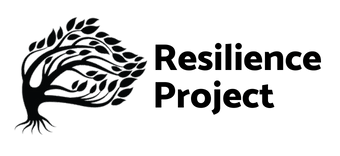Kim Stanley Robinson hosted by Michael Lerner
Author Kim Stanley Robinson discusses his latest book, “Ministry for the Future”.
Author Kim Stanley Robinson discusses his latest book, “Ministry for the Future”.
What Happens in Texas Won’t Stay in Texas webinar with Michael Webber
Co-hosted by Virginia Organizing, Foresight Analysis Nexus (FAN), The Millennium Alliance for Humanity and the Biosphere (MAHB), and The Resilience Project (TRP)
While the Global Challenges faced by OMEGA are wide-ranging, the impacts are concretely felt by communities on the front lines. Three grassroots organizers working on issues including racism, climate change, and extractive industries share their views on the Global Challenges, the impacts felt by communities, and the intersectional work needed to accelerate our transition to a just, sustainable and resilient world.
is a Canadian research centre addressing the full range of humanity’s converging environmental, economic, political, and technological crises. Using advanced methods for mapping and modeling complex global systems, Institute researchers will identify, and where possible help implement, high-leverage interventions that could rapidly shift humanity’s course towards fair and sustainable prosperity.
The Institute is located at Royal Roads University in British Columbia, a leader in training professionals to apply creative solutions to entrenched problems. Its director is Thomas Homer-Dixon, an award-winning scholar and author with deep experience in using complexity science to anticipate, analyze, and respond to global threats.
Image courtesy of Pixabay.com
A framework by which we can understand and respond to the COVID-19 crisis while anticipating its consequences and preparing for what’s next.
How Everything Can Collapse: A Manual for Our Times, co-authored by Pablo Servigne and Raphaël Stevens, provides “a valuable guide to help everyone make sense of the new and potentially catastrophic situation in which we now find ourselves.”
What if our civilization were to collapse? Not many centuries into the future, but in our own lifetimes? Most people recognize that we face huge challenges today, from climate change and its potentially catastrophic consequences to a plethora of socio-political problems, but we find it hard to face up to the very real possibility that these crises could produce a collapse of our entire civilization. Yet we now have a great deal of evidence to suggest that we are up against growing systemic instabilities that pose a serious threat to the capacity of human populations to maintain themselves in a sustainable environment.
In this important book, Pablo Servigne and Raphaël Stevens confront these issues head-on. They examine the scientific evidence and show how its findings, often presented in a detached and abstract way, are connected to people’s ordinary experiences – joining the dots, as it were, between the Anthropocene and our everyday lives. In so doing they provide a valuable guide that will help everyone make sense of the new and potentially catastrophic situation in which we now find ourselves. Today, utopia has changed sides: it is the utopians who believe that everything can continue as before, while realists put their energy into making a transition and building local resilience. Collapse is the horizon of our generation. But collapse is not the end – it’s the beginning of our future. We will reinvent new ways of living in the world and being attentive to ourselves, to other human beings and to all our fellow creatures.
supports building community resilience in a world of multiple emerging challenges: the decline of cheap energy, the depletion of critical resources like water, complex environmental crises like climate change and biodiversity loss, and the social and economic issues which are linked to these. Created by the founders of the Post Carbon Institute, Resilience.org functions as “a community library with space to read and think, but also as a vibrant café in which to meet people, discuss ideas and projects, and pick up and share tips on how to build the resilience of your community, your household, or yourself.”
The Climate Resilience Fund offers grants under two programs: the “Coordination and Collaboration in the Resilience Ecosystem Program,” which “features an annual grants competition that aims to rapidly scale up climate adaptation and resilience services,” and the “Capacity Building Program,” whose “funds are utilized to expand the capacity of institutions or collaboratives that provide climate services to communities and/or resource managers.”
Photo by Ruth Hennig
In this September 23, 2019, video, Swedish climate activist Greta Thunberg chastised world leaders for failing younger generations by not taking sufficient steps to stop climate change. “You have stolen my childhood and my dreams with your empty words,” Thunberg said.
In this talk given at The Resilience Gathering, Joanna Macy guides us how to suffer with the world and make responsible decisions that take into account our interconnectedness with all that is.
